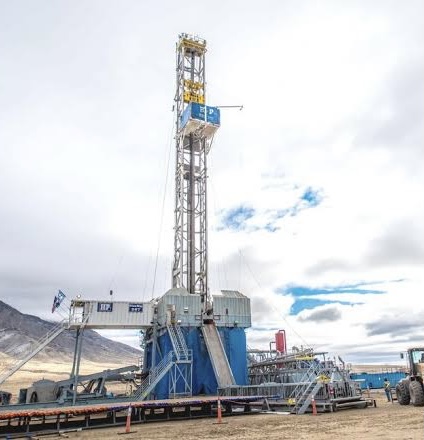KEY POINTS
- Geothermal startups rise as AI demands more clean energy.
- Natural gas remains a strong competitor with CCS technology.
- New laws and private investments boost geothermal’s growth potential.
As artificial intelligence (AI) grows in power and influence, so does its demand for energy.
This shift has sparked a boom in geothermal energy startups, as Big Tech companies seek cleaner, more sustainable energy sources to power their massive data centers.
Major players like Alphabet’s Google and Meta are backing geothermal projects to meet their energy needs.
Geothermal energy is seen as a faster, more reliable alternative to nuclear, with the added benefit of being continuous, unlike wind or solar.
Trey Lowe, Chief Technology Officer at Devon Energy, a shale gas producer investing in geothermal startup Fervo Energy, said, “We believe geothermal, along with abundant natural gas, can be part of the all-of-the-above energy mix we need to meet the demand.”
But while geothermal energy holds promise, it faces challenges. Drilling costs are high, project approvals are lengthy, and many early-stage ventures require significant investment before they can turn a profit.
Natural gas rivalry complicates geothermal’s future growth
Despite the growing interest in geothermal energy, natural gas remains a formidable rival.
Top shale oil producers like Chevron, ExxonMobil, and Diamondback Energy are advocating for natural gas as a long-term solution to the energy transition.
These energy giants are promoting natural gas plants coupled with carbon capture and storage (CCS) technology to reduce greenhouse gas emissions.
According to Reuters, this approach gives natural gas a competitive edge, especially as it benefits from existing infrastructure and widespread availability.
Cindy Taff, CEO of geothermal startup Sage Geosystems, highlighted the industry’s uphill climb, noting that supermajors like Chevron and Shell are adopting a “wait-and-watch” approach to geothermal.
“There is more interest from smaller oil and gas producers as well as service companies,” she said.
Some smaller firms, like Gradient Geothermal, have found success by utilizing existing oil and gas infrastructure for geothermal production.
The company recently partnered with Chord Energy to provide geothermal energy at a North Dakota oil site, showcasing how old oil assets can be repurposed for clean energy.
Legislation and investments boost geothermal’s growth prospects
The geothermal sector is riding a wave of bipartisan support from U.S. lawmakers. Two bills, the CLEAN Act and HEATS Act, have passed the House and are awaiting Senate approval.
If signed into law, these bills would streamline regulatory processes and make it easier for startups to launch geothermal projects.
Private investments are also on the rise. Sage Geosystems recently secured $30 million in funding, while more than 60 geothermal startups have emerged in the past two years, according to Geothermal Rising, an industry association.
Texas has become a hub for geothermal development, thanks to abundant resources and clear regulatory pathways.
“Texas is becoming the ‘place to be’ for geothermal exploration,” said Matt Welch, a representative of the Texas Geothermal Energy Alliance.
Ten out of 22 geothermal startups launched in the U.S. between 2016 and 2022 are based in Texas.
Geothermal energy could be a major player in the energy market if it can keep costs competitive.
According to Rystad Energy, the levelized cost of electricity (LCOE) for geothermal energy in the U.S. averages $64 per megawatt-hour (MWh), which is cheaper than nuclear at $182/MWh and competitive with combined cycle gas at $77/MWh.
As AI’s hunger for energy continues to grow, geothermal startups hope to carve out a larger share of the energy mix, even as natural gas maintains its stronghold.



